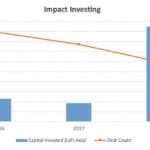Social Business Roundup: Biblical Impact Investing, Salt from Solar in Kenya and Invoices of Inclusion
Where Would Jesus Invest?
In 2016 alone, 21 socially responsible exchange-traded investment funds (ETFs) were launched, so the debut of another wouldn’t normally be that newsworthy. But two funds launched this week have made headlines – for reasons that may be unwelcome for some in the social investing sector.
As The New York Times and others reported, a company called Inspire Investing has rolled out two new ETFs based on “biblically responsible investing” (BRI) – the alignment of investments with (often conservative) Christian belief. BRI can resemble typical ESG screening in some respects – both often exclude “sin stocks” like alcohol and gambling, for instance. But it extends this focus to hot-button issues like abortion, pornography and LGBT rights. “Conservative people are not being served by SRI, impact or ESG,” Inspire’s President and CEO Robert Netzly said in an interview, criticizing the “strong liberal tilt” of typical social investing. According to Inspire, this bias excludes the Evangelical Christian market – and its $13.7 trillion in controlled assets.
Netzly reportedly wants BRI to grow into “the Chick-Fil-A of investing” – meaning he sees it as an approach with mainstream potential. But given the controversy over that restaurant chain’s highly public anti-LGBT stance, the analogy may be apt for other reasons. Though a few other Christian-focused ETFs have come and gone over the years, Inspire’s are reportedly the first to target support for the LGBT community as a reason for exclusion – while they notably do not screen out the weapons, defense, fossil fuels and tobacco industries. As the social investing movement sets its sights on mainstream acceptance, the slow-growing intrusion of culture war politics into the conversation is likely to cause some heartburn.
– James Militzer
Salt from Solar
One of the largest solar hybrid systems in East Africa has been completed and will supply almost a quarter of the energy needs of a large-scale salt mine in rural Malindi.
SolarAfrica developed the project with SMA Sunbelt to power Kenyan salt producer Krystalline Salt. The system will generate 1.6 gigawatt hours, saving Krystalline about 22 percent of its annual energy costs. A diesel-powered generator powers the operations when the sun isn’t shining.
The project was funded by the government of Japan’s Joint Crediting Mechanism financing program, which backs low-carbon technologies in developing countries.
A new way to address financial inclusion
“Ninety is the new 30.” That’s an inside joke small business owners share with each other as they count the days until their invoices are paid.
Corporations in emerging economies are especially guilty of stretching that payment window. It’s enough to make small business owners pull out their hair – and go out of business.
That’s why Mario Jordan “Magellan” Fetalino III founded Acudeen, a fintech company that helps corporations in the Philippines streamline their payment systems while simultaneously upgrading small businesses’ invoicing systems. Or, as Forbes put it, Fetalino “decided to target the invoicing process instead of creating a financing system for SMEs” and is thereby “spreading financial inclusion one invoice at a time.”
Heroes are hard to find
Salome Karwah has died under discouraging circumstances in Liberia.
You might remember her as a TIME magazine “Person of the Year” in 2014. She was famous for surviving Ebola in a treatment unit in Monrovia and then selflessly returning to that same unit to treat others.
She died last week after lapsing into convulsions following childbirth via caesarean section. According to her sister, hospital staff refused to touch Karwah because she once had Ebola. Even if that’s not true, but especially if it is, we know one thing: Heroes are hard to find.
Carpe diem, global health advocates
Something’s different about corporations these days, David Wofford writes in Global Health NOW. They’re “willing to make strong, very public stands on controversial issues,” he says, citing Super Bowl ads as an example.
He recommends that global health advocates recognize this moment and attempt to help shape corporate policy and practice concerning reproductive health and rights.
“Many people do not recognize the direct link between global corporations – especially those outside the health sector – and public health goals,” Wofford writes. “The operations and policies of corporations and their supply chains touch millions of poor workers in low- and middle-income countries and directly affect worker access to general and reproductive health services.”
Moving to ‘Impact Management’
If you make a big investment, your financial advisor should apprise you of risks versus rewards. But financial advisors still can’t do that around social/environmental impact, argues Brian Trelstad, a partner at Bridges Fund Management.
“We’re working to develop a common convention for impact management; one that will enable investors to clearly articulate and share their expectations around outcomes, demographics, materiality and risk,” he writes in a blog post for the London School of Economics Business Review.
The “we” in this effort includes impact investors such as Bridge, asset managers like BlackRock, foundations like Ford and Omidyar, and policy makers like DfID. Trelstad says three things could result from this shift.
One Plucky Enterprise
NPR brings a tale, and several lovely photos, of a Sri Lankan tea social enterprise that shares 10 percent of its revenues (not profits) with the workers who pluck the leaves.
“We decided to do revenue share because even when we’re not making a profit, we felt it was only right that workers and management receives recognition,” co-owner Simon Bell told NPR. Bell and three partners purchased the Amba Estate in 2006.
The business, which has been producing tea since long before it was converted into a social enterprise, has also helped to ease ethnic tensions among its workers since the end of the country’s civil conflict.
Top image credit: SMA.
- Categories
- Energy, Health Care, Investing



